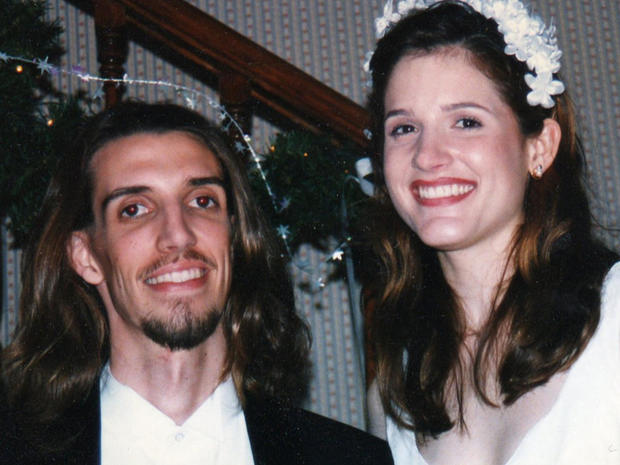Lost samples, poor screening: sperm bank industry oversight examined
You might think that sperm banks are regulated like your doctor’s office. But there is actually limited government oversight, which some consumers say has led to unpleasant surprises and heartache.
High school sweethearts Sarah Robertson and her husband, Aaron, had always planned to have children. But in 2004, at the age of 29, Aaron suffered a fatal stroke.
“He was the best husband that any woman could ever want,” Robertson said.
As he lay dying in the hospital, Robertson made the decision to harvest some of his sperm. “I was thinking that there is a very good chance that my husband is going to die,” she told correspondent Anna Werner. “But I’ll have this, and I can have a child that will have his likeness, or his laugh to bring with me, and that gave us all so much comfort and hope.”
She selected a clinic in the Los Angeles area to freeze six vials of Aaron’s sperm. But when she was finally ready to have a baby, in 2014, she got a shock.
She said the clinic, which had changed hands and was now known as Reproductive Fertility Center, couldn’t find the frozen sperm. All six vials were gone -- and with them, her hope for a baby from her husband.
“It was a like a nightmare,” she said. “Like, how could this be happening?”
Robertson has filed a lawsuit. Hers joins legal action taken against other sperm banks.
Several families have sued a Georgia-based company over its sales of sperm from a donor it claimed was a neuroscientist, but who court papers allege was schizophrenic and did not even have a college degree.
“When you have a multibillion dollar industry with no oversight, what could possibly go wrong?” said Wendy Kramer, who runs the Donor Sibling Registry, a group that connects donors and their genetic family members. “What we’ve come to realize is that these sperm banks are sperm sellers, first and foremost. They’re a money-making business.”
FDA regulations only require testing for eight diseases. No one regulates how sperm banks keep track of biological materials, or do genetic testing or other vetting of donors.
“Without regulation, without anybody watching, the sperm banks can basically say they test for whatever they want to say.”
Some sperm banks disagree: California Cryobank, one of the country’s largest, says it performs expensive genetic tests and rejects many potential donors.
It told CBS News, “To accuse the industry of not caring about the well-being of the individuals we are servicing is simply illogical.”
But even Albert Anouna, who runs the New Jersey-based sperm bank Biogenetics Corporation, told CBS News, “Buyer beware. That’s what I talk about all the time.”
Anouna says for his sperm donors, he verifies college transcripts and does extended genetic and health tests, nearly all of them voluntary. He says there is no requirement for other sperm banks to do what Biogenetics does.
He says there is a need for more regulation. “You can achieve that. It will take monumental task on a national level,” he told Werner. “Because you have to invite a lot of sperm banks and invest time in creating proper legislation.”
“Do you think they want legislation?” Werner asked. “Do they want regulation?”
“I don’t know that,” Anouna replied. “I may be the only one that welcomes that type of oversight.”
Robertson says it’s needed, because she has another worry -- that the clinic may have given her husband’s sperm to someone else, who may not know a piece of critical medical information: that the stroke that killed him was related to an inherited genetic disorder from which he suffered, called marfan syndrome, something they had planned to test for before she got pregnant.
“I lost my whole future, for me everything that I had planned and my children that I was going to have,” she said. “But almost worse than that is living and knowing that there may be children out there that have this horrible disease and they don’t know.”
The clinic she’s suing had no comment.
Its attorney told CBS News instead that the facts will come out through court proceedings.
And the attorneys for the sperm bank sued in Georgia told us donors’ histories are provided by the donor and “cannot be verified for accuracy.”
But they said, in addition to following FDA regulations, the company tests for “common genetic conditions.”
